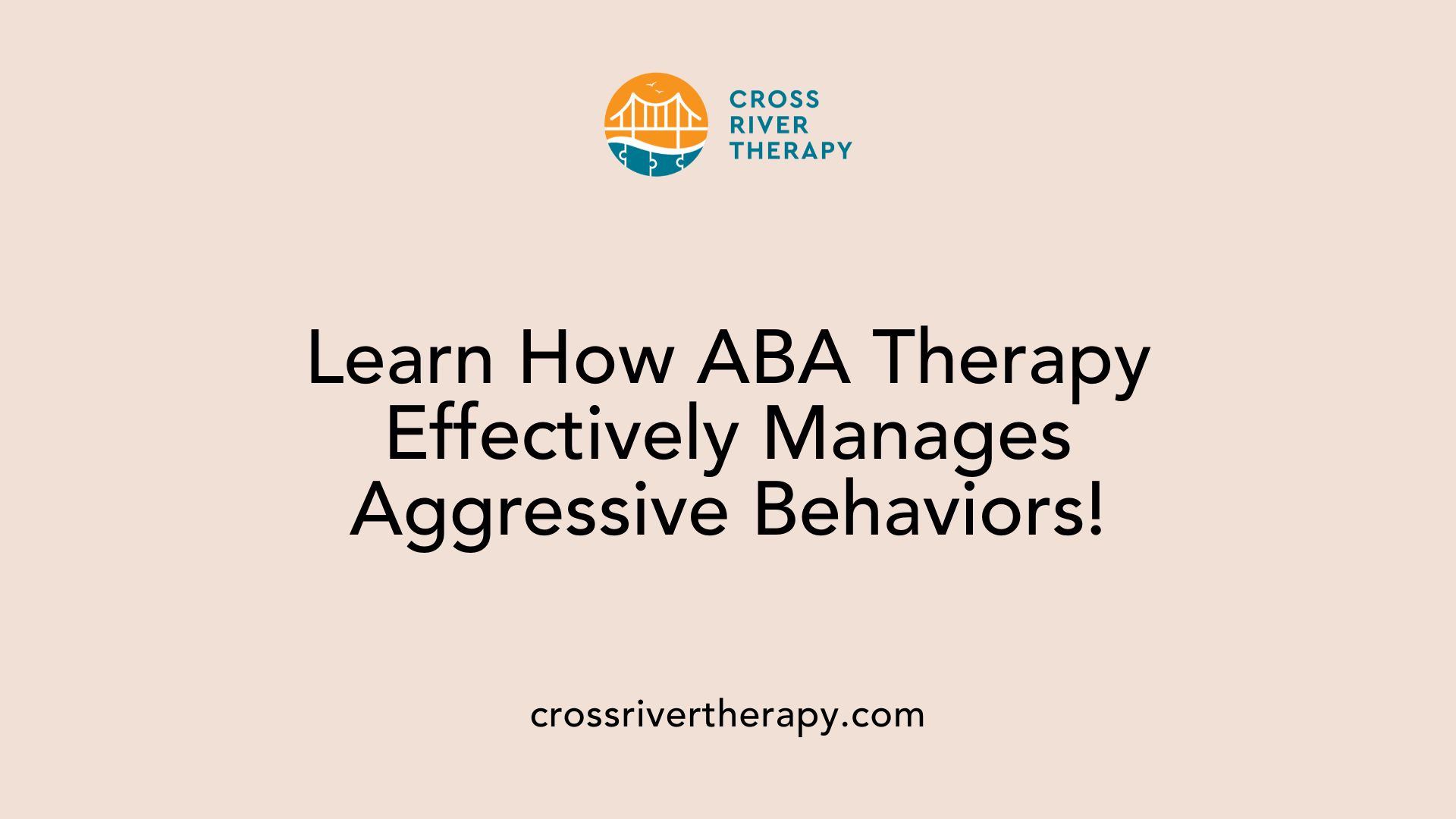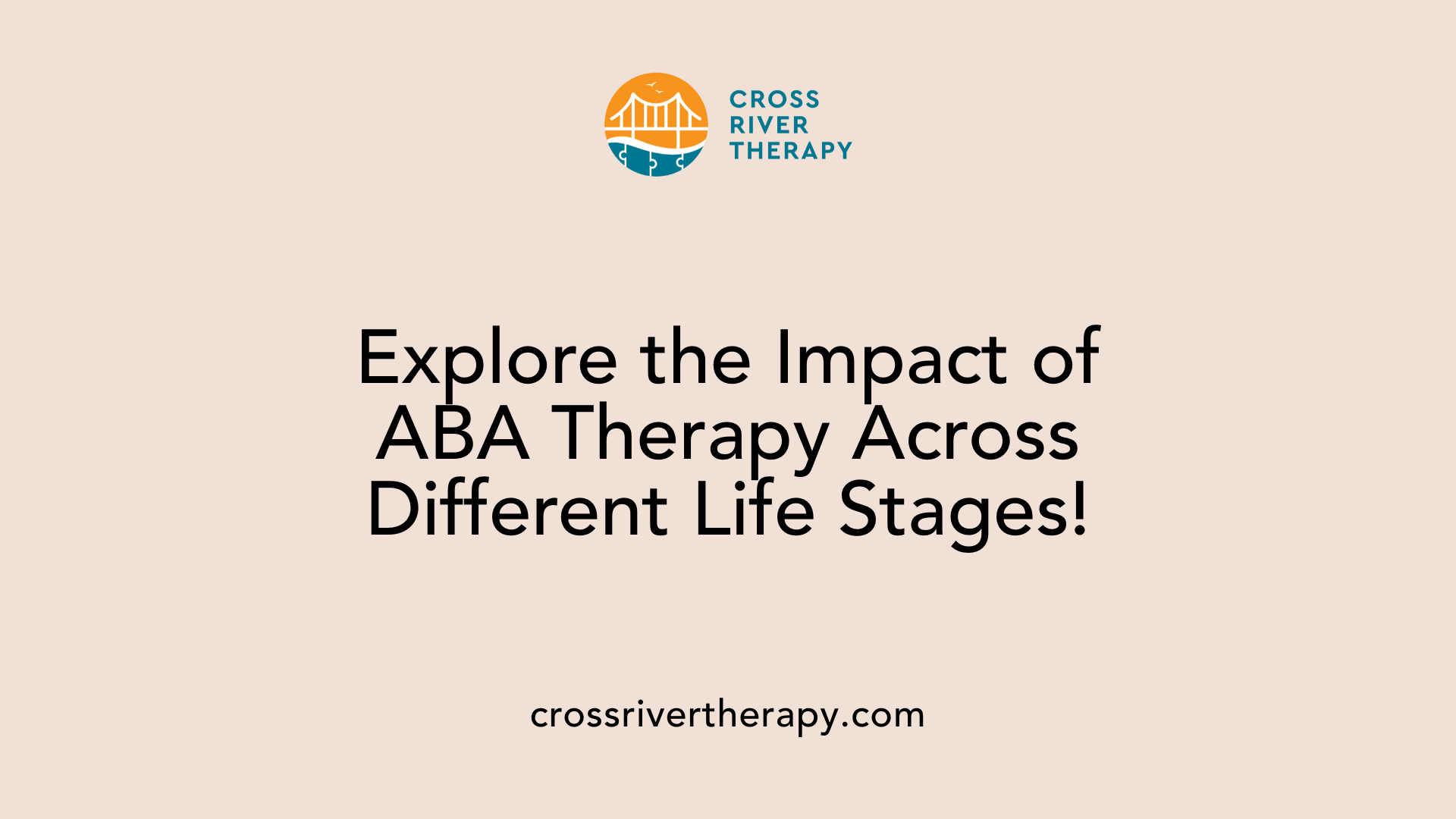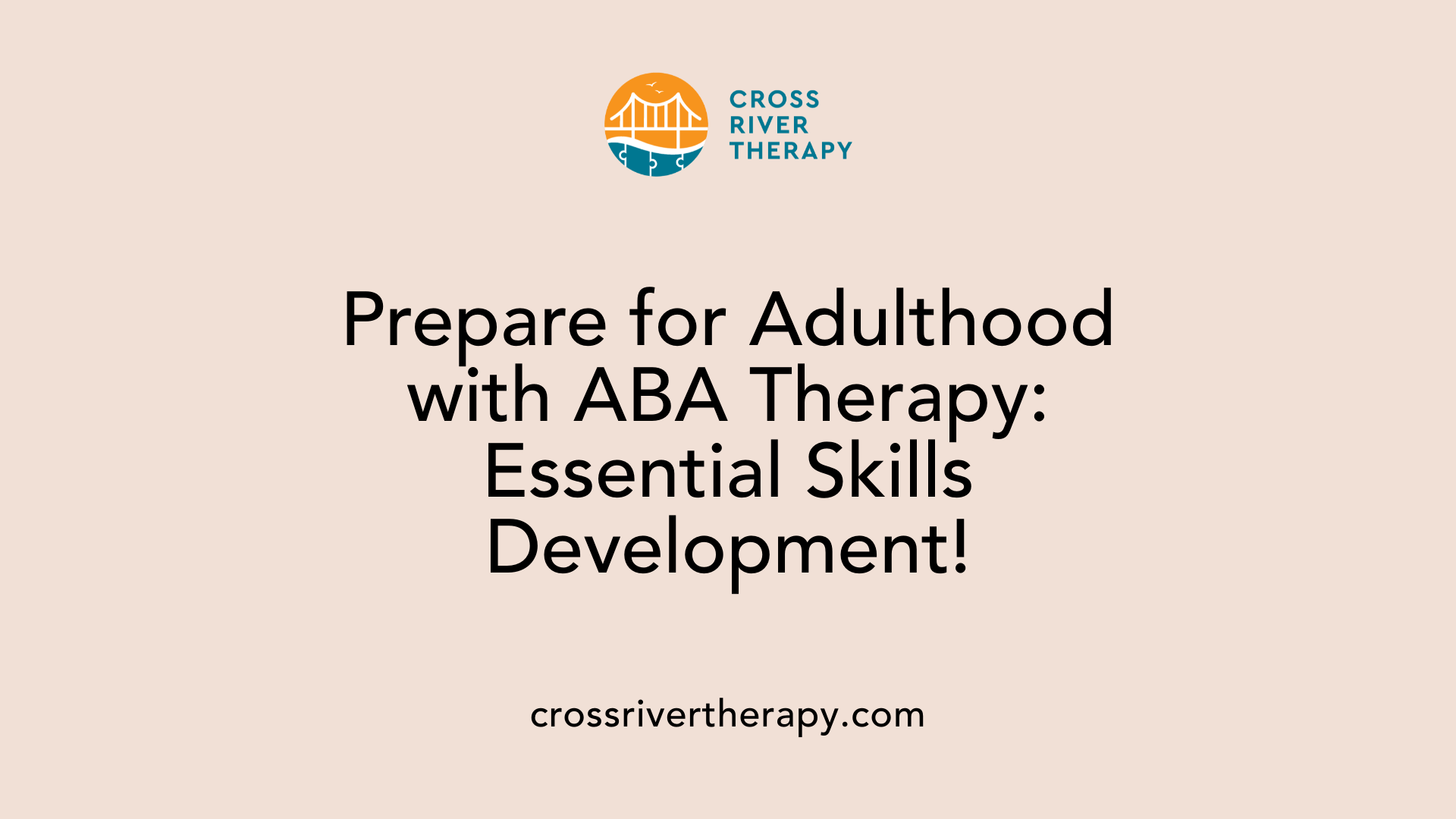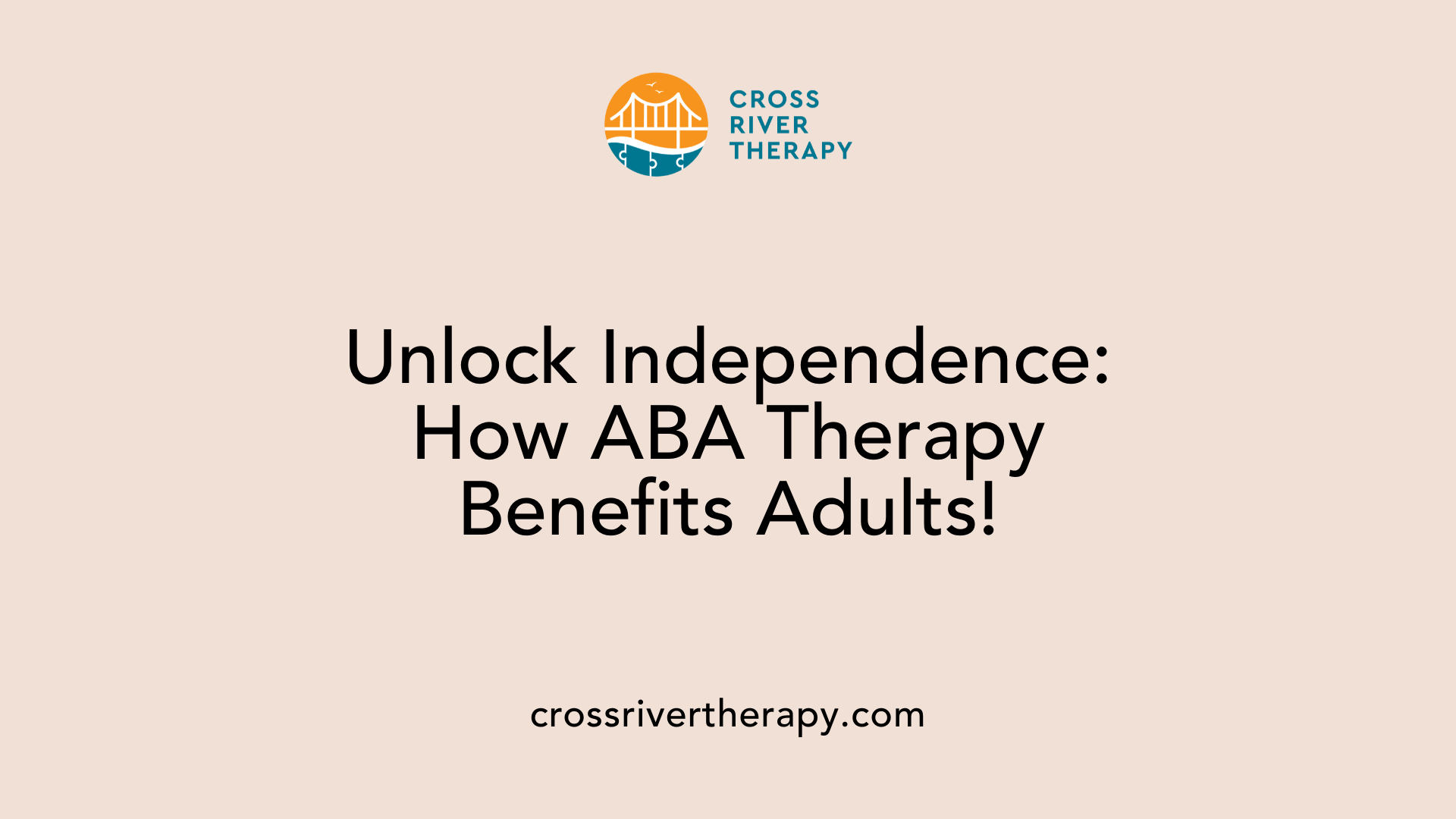The Benefits of ABA Therapy for Teens and Young Adults
Unlocking Potential: How ABA Therapy Transforms Life for Young Adults with Autism
Introduction: Bridging the Gap Between Adolescence and Adulthood
Navigating the complex transition from adolescence to adulthood can be challenging for everyone, but for teenagers and young adults on the autism spectrum, it often comes with additional hurdles. Applied Behavior Analysis (ABA) therapy, renowned for its adaptability and effectiveness, offers essential support during this critical period. As teenagers strive for independence and prepare for the future, ABA provides tailored strategies to help them succeed in various aspects of life, from social interactions to daily living skills.
Understanding the Core Benefits of ABA Therapy

What are the benefits of ABA therapy for teenagers and young adults?
ABA therapy offers numerous benefits for teenagers and young adults, particularly those on the autism spectrum. One important aspect is the improvement in essential skills such as language and communication, social interaction, attention, focus, and academics. By addressing these areas, the therapy works to reduce problematic behaviors, leading to a better quality of life.
The therapy employs principles of positive reinforcement, encouraging desired behaviors through rewards. This approach not only helps individuals learn but also significantly boosts motivation.
Tailored to individual needs, ABA programs are crafted by certified behavior analysts, ensuring that interventions are relevant to each teen's specific circumstances. This individualized plan is crucial; it evolves as the person grows and their needs change, focusing on skills crucial for independence and social success.
Behavioral Improvements
High-quality ABA interventions have been shown to enhance overall behavior. For teens engaging in disruptive or inappropriate behaviors, ABA teaches alternative behaviors and coping mechanisms, effectively addressing the root causes.
Skill Acquisition
ABA therapy assists teens in gaining vital independent living skills, including communication and social skills that allow them to build meaningful relationships. This includes essential areas such as self-advocacy, organization, and time management, which are paramount as they transition into adulthood.
A specific emphasis on skill areas like personal safety, medical compliance, and hygiene also prepares teens for everyday challenges. Programs like those from Trumpet Behavioral Health help teens learn critical social interactions, further reinforcing the practicality of ABA therapy in real-world settings.
Addressing Aggressive Behaviors Through ABA

How does ABA therapy help with aggressive behavior?
Applied Behavior Analysis (ABA) therapy is particularly effective in addressing aggressive behaviors in individuals with autism. It utilizes systematic techniques aimed at modifying specific behaviors related to aggression.
- Behavior Assessment: Therapists begin with a comprehensive assessment to identify triggers that lead to aggressive actions. This understanding is crucial for developing tailored interventions.
- Replacement Behaviors: ABA focuses on replacing aggressive behaviors with more appropriate responses. For instance, instead of lashing out, individuals learn ways to express frustration through words or other non-aggressive methods.
- Reinforcement Strategies: Positive reinforcement is a cornerstone of ABA. When individuals successfully use appropriate behaviors rather than aggression, they are rewarded. This encourages them to continue using these newfound skills in the future.
- Communication Techniques: ABA helps enhance communication skills. Improved communication means individuals can articulate their needs or frustrations, reducing the likelihood of resorting to aggressive behavior.
- Emotional Regulation: Therapies also emphasize emotional regulation techniques. Individuals are taught coping strategies to manage their feelings effectively. This includes recognizing emotional triggers and implementing self-soothing strategies.
Consistent application of these strategies leads to a significant reduction in aggressive behaviors, fostering better social interactions and environments.
| Topic | Description | Techniques Used |
|---|---|---|
| Aggressive Behavior | Understanding triggers and developing responses | Behavioral Assessment |
| Communication Strategies | Enhancing expression and reducing frustration | Replacement Behaviors |
| Emotional Regulation | Managing feelings and reducing outbursts | Coping Strategies |
This structured approach allows individuals struggling with aggression to cultivate vital social skills, facilitating a more harmonious interaction within their communities.
Effective Application of ABA at Different Life Stages

At what age is ABA therapy most effective?
Applied Behavior Analysis (ABA) is widely recognized for its effectiveness in supporting individuals with autism, particularly when initiated early. Research shows that starting ABA therapy as soon as a child is diagnosed with Autism Spectrum Disorder (ASD), typically around age 2, yields the best results. Programs like Early Intensive Behavior Interventions (EIBI) and the Early Start Denver Model (ESDM) specifically cater to this young demographic, recommending an intensity of 20 to 40 hours of therapy weekly.
As individuals grow older, the approach remains beneficial, albeit with adaptations. Teens and young adults can still greatly benefit from ABA, albeit requiring fewer therapy hours. This flexibility allows these older individuals to engage in various other activities while honing practical skills.
Adaptable approach for older individuals
ABA therapy is individualized, meaning the goals differ based on the person's developmental stage and specific needs. For adolescents, the therapy can focus on integrating faster skills and social independence, customized to their life circumstances.
For example, behavior analysts can help older teens develop important social interaction skills such as effective communication, conflict resolution, and even workplace etiquette in tandem with job coaches.
Life skills training
Teaching life skills is another crucial area of ABA intervention for older individuals. Skills such as personal care, meal planning, budgeting, and public transportation navigation are vital as they transition into adulthood.
Behavioral Skills Training (BST) is employed here, where practitioners model tasks, provide practice opportunities, and give feedback, ensuring that adolescents can apply these skills in real-life situations.
By targeting these essential skills, ABA therapy fosters independence, enhances social competence, and broadens employment opportunities for individuals with autism at every stage of their lives.
ABA Therapy's Role in Transitioning to Adulthood

Skills Development for Adulthood
Applied Behavior Analysis (ABA) therapy plays a crucial role in preparing adolescents and young adults with autism for adulthood. Through individualized approaches, ABA targets essential skills necessary for independent living, such as:
- Organization: Teaching individuals to keep their environments tidy and their schedules organized.
- Time Management: Helping them prioritize tasks and manage their time effectively.
- Self-advocacy: Empowering them to communicate their needs and preferences assertively.
Life Skills
Independent living skills are also fundamental in the ABA framework. Programs focus on:
- Personal Care: Encouraging routines for hygiene and health.
- Meal Planning: Teaching how to prepare balanced meals and manage nutritional needs.
- Financial Literacy: Covering budgeting and understanding expenses.
These skills help in transitioning successfully into adult life, enhancing overall quality of life.
Social Skills and Employment
ABA therapy provides significant social skills training, which is vital in both educational and vocational settings. This includes:
- Effective Communication: Helping individuals maintain conversations and express themselves clearly.
- Conflict Resolution: Teaching strategies to handle disagreements appropriately.
Additionally, collaborations with job coaches help individuals develop necessary skills for employment, such as resume writing and workplace etiquette, promoting integration into the workforce.
Continuous Growth and Independence for Adults

Can adults benefit from ABA therapy?
ABA therapy can indeed benefit adults, particularly those with autism or other developmental disorders. This structured approach can enhance skills and facilitate greater independence.
Adult applications of ABA
Programs tailored for adults focus on critical areas, such as:
- Communication skills: Enhancing verbal and non-verbal communication.
- Social skills: Finding effective ways to interact and engage in conversations.
- Daily living skills: Practical independence, including managing personal care and finances.
Behavioral management
ABA techniques effectively manage behaviors that may hinder learning or daily activities. Adults often work on coping skills or strategies to minimize disruptions in their personal and professional lives.
Skill enhancement for independence
Specifically, skill development includes:
- Problem-solving: Teaching adaptive responses in various scenarios.
- Self-advocacy: Helping individuals express needs and preferences.
- Time management: Encouraging effective organization and prioritization of daily tasks.
- Vocational skills: Collaborating with job coaches to prepare for employment opportunities.
The flexibility and adaptability of ABA make it a valuable resource for adults seeking personal growth and improved functioning. It's essential for adults to have access to such programs as the need for tailored support continues into adulthood.
Conclusion: Building a Foundation for Success
ABA therapy stands out as a critical support for teenagers and young adults with autism as they transition to adulthood. By focusing on personalized interventions, it not only addresses current challenges but also lays the groundwork for future success and independence. As each individual navigates this journey, ABA therapy equips them with vital tools to lead fulfilling, independent lives, continuously adapting to meet evolving needs. Its enduring impact underscores the importance of accessible ABA services for all, ensuring that every individual has the opportunity to thrive at their own pace.
References
- Can ABA help a teen on the mildly affected end of the autism ...
- What is ABA Therapy for Teens Really Like?
- ABA Therapy for Adolescents and Young Adults with Autism
- Trumpet's ABA Therapy for Teenagers & Adolescents
- What can ABA offer young adults with autism?
- At What Age Is ABA Therapy Most Effective? - Bluesprig Autism
- BlueSprig's Blog - Bluesprig Autism
- Applied Behavior Analysis (ABA) | Autism Speaks
- Applied Behavioral Analysis (ABA) - Autism Speaks



